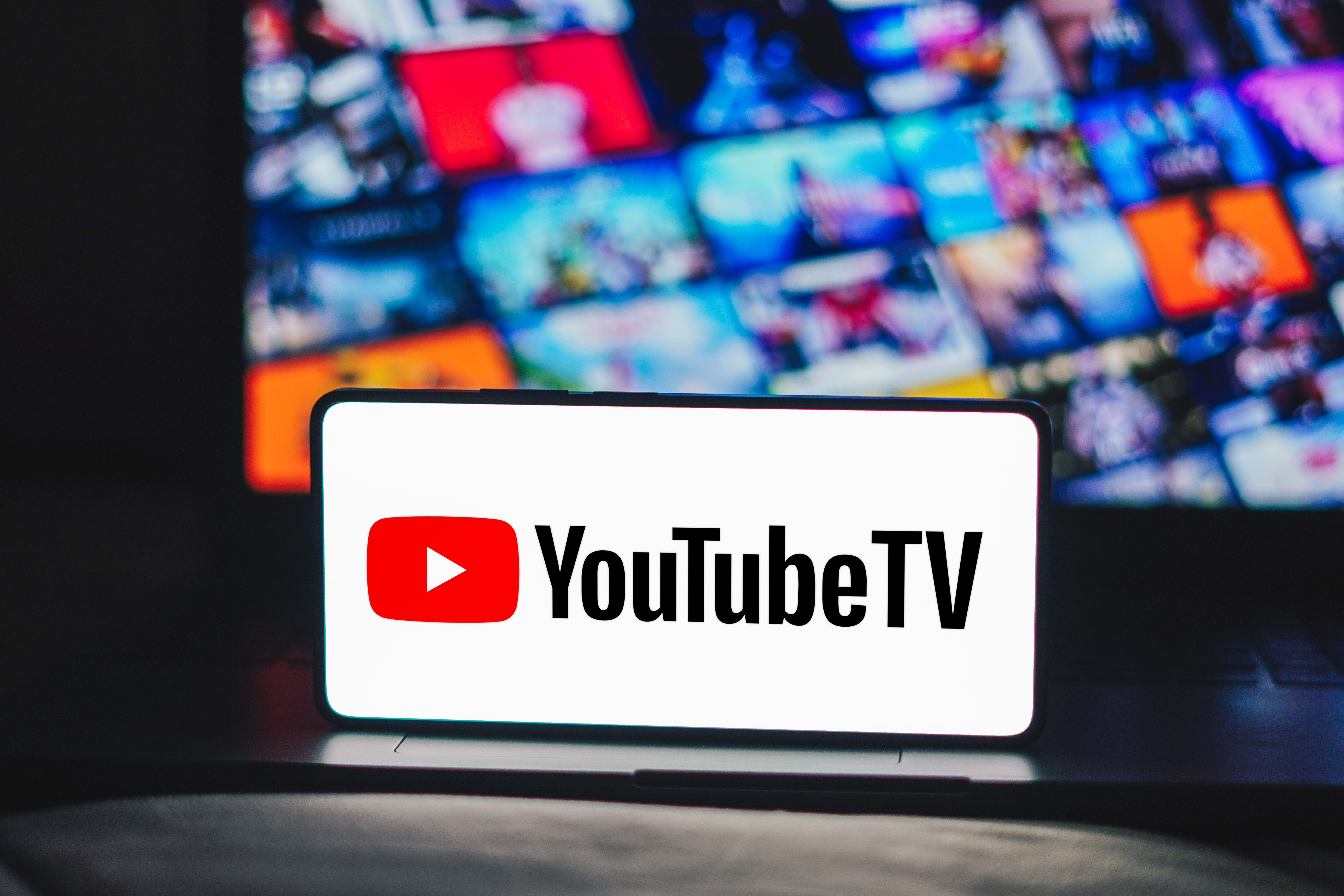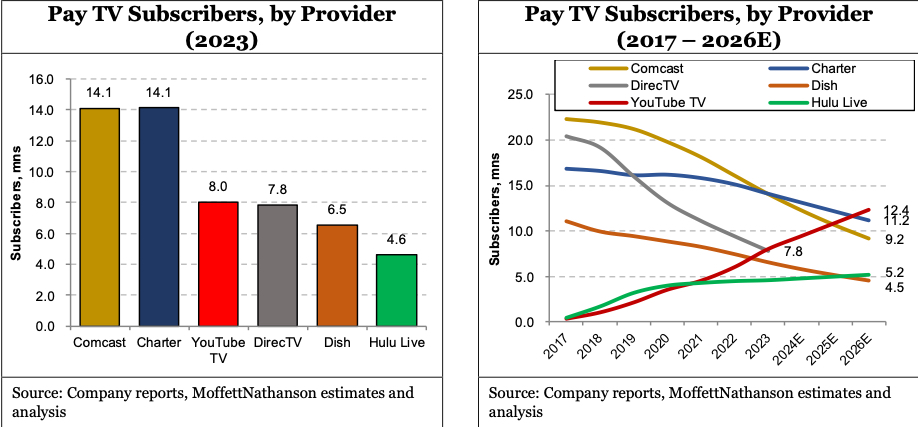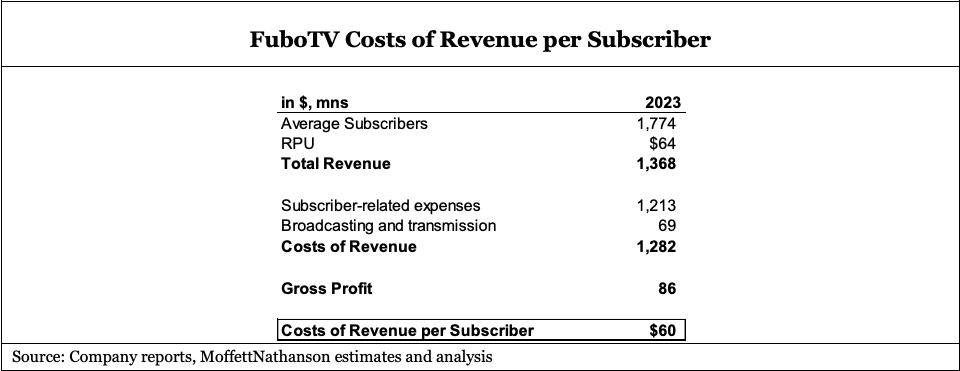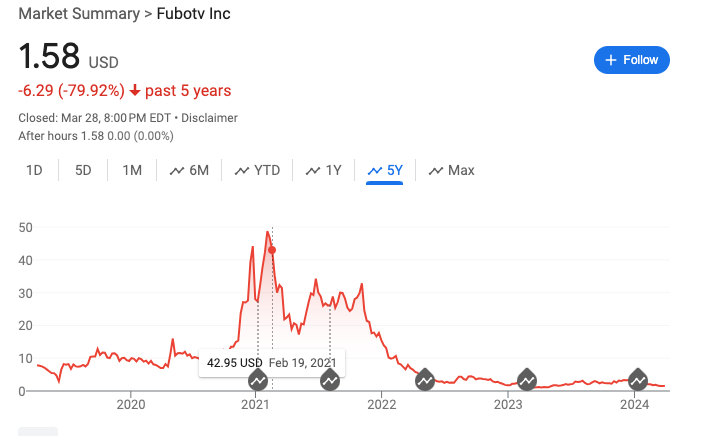Wait, vMVPDs Are Real, Profitable Businesses, After All?
Also in this week's 'Next Text,' we examine Opening Day's (outsized?) TV demand, Kim Mulkey's (also outsized) outrage ... and a big moment for women's hoops

The smarter way to stay on top of the streaming and OTT industry. Sign up below.
You are now subscribed
Your newsletter sign-up was successful
Each week, Next TV writers Daniel Frankel and David Bloom cancel plans for weddings, kidney dialysis, funerals and other important engagements to make time to write this column you said you so badly needed. You are welcome.
DANIEL FRANKEL: Happy Easter weekend, Big D. So driving back from a spring break high-school baseball tournament Thursday down a stretch of the CA-15 Freeway in Poway (outside San Diego), otherwise known as the "Tony Gwynn Memorial Freeway," I thought about all the TV business activity that was happening on Opening Day of the 2024 Major League Baseball season. Hulu + Live TV added the MLB Network; Fubo licensed Yankees RSN YES; and the Colorado Rockies moved on from the defunct AT&T SportsNet Rocky Mountain by putting their fate in the hands of MLB, just the way the Padres and Diamondbacks did. A lot of sturm un drang for a sport barely anybody seems to watch.
DAVID BLOOM: It's probably best to think about baseball the way we think about FAST channels: something to watch while we're watching something else on some other screen. It's companion viewing. And occasionally, something big happens, and the crowd noise swells, and you look up from YouTube or TikTok or your video game or your instant messages or your cooking or cleaning or whatever. Even better, baseball creates a lot of something to watch. Thirty teams times 162 regular-season games, spread over several hours a day nearly every day for more than six months, plus spring training and two months of playoffs.

That's nearly 4.900 regular-season games alone. In some ways, baseball is made for the FAST TV era: near bottomless programming that's both comfortingly familiar and changes a bit each time,with lots of practically custom-built ad opportunities in the game's structure, and only low engagement needed from viewers. No wonder everyone is scrambling to get a piece, especially with new opportunities thanks to the RSN collapse in many local markets.
FRANKEL: Another Interesting report from perennially .400-hitting equity analyst Michael Nathanson this week about YouTube TV. For nearly a decade, equity analysts, including Nathanson, have been telling us the low-margin virtual pay TV business is not ... a real business. But lo and behold, Google is about to make money on it.
BLOOM: Who knew wrapping Google's lucrative ad ecosystem around mostly free content, favoring it in search queries, while sharing revenue with its most popular creators could be a real business? In 2021, YouTube said it had shared $30 billion over the previous three years with 2 million creators . In 2023's last quarter alone, YouTube ads generated $9.2 billion, up 15% in a year. YouTube is the world's most-watched streaming service, ahead of even Netflix. That sounds like A Real Business, though I certainly bow to the esteemed Mr. Nathanson when it comes to whipping up a financial model. I just wish the Alphabet CEO could articulate a unified strategy for all the video-connected odds and ends under Nadella's umbrella. Where are they going? How do they fit with search and AI, their hardware and mobile initiatives, and even those "other bets?" And yes, all this sent me to YouTube, searching for The Who's Won't Get Fooled Again, with the classic line, "Meet the new boss, same as the old boss." YouTube is the new boss.
FRANKEL: Ms. Litella, Nathanson was talking about YouTube TV, the bundled linear side of YouTube's business that nobody even a few short years ago -- Nathanson included -- ever thought would be profitable.
The smarter way to stay on top of the streaming and OTT industry. Sign up below.
The analyst used Fubo as a model, given that it is a pure-play vMVPD that provides the "cleanest" metrics to the outside observer. Based on this basic revenue-vs.-cost model, Nathanson extrapolated that YouTube TV was slightly unprofitable in 2023, but will swing to a profit in 2024 due to its fast user growth. "Driven by continued subscriber additions and the recent price increase to $72.99 per month," he wrote, "we forecast YouTube 'core' revenue (i.e. excluding Sunday Ticket) will reach $7.5 billion this year and grow to over $10 billion in 2026. In the long-term, MoffettNathanson views the vMVPD gambit as "a roughly 10-15% margin business." Juxtapose this with 2020, when the same analyst said YouTube TV was facing a "profitless future."
BLOOM: Oops. Never mind, except my bigger point stands. What is the Alphabet video strategy? Same as Amazon, i.e., keep spending billions on pretty much everything, to see what sticks? And does it matter, given their bottomless wallets? Almost makes you sympathize with the traditional studios. Almost. Amazon, by the way, just bagged its own streaming-only NFL playoff game next season, for a reported $120 million.
Also read: Peacock Gets Another NFL Exclusive, Will Stream Opening-Weekend Game From São Paulo, Brazil
And Peacock/Comcast, which started this whole streaming-only thing in January, has another such exclusive in 2024-25’s first week, from Brazil. Somehow, even with the ardent Philadelphia Eagles fan base involved, I doubt Peacock will snag another 3 million signups. Amazon probably won’t draw many new customers either, but it’s all about selling stuff on the Big River (speaking of which, why isn’t Amazon handling the Brazil game; talk about on-brand).

FRANKEL: What I also found interesting about Nathanson's Thursday note was that he seemed to validate Fubo's business as a side note. Fubo was hyped into the stratosphere in 2021, but subsequently descended to flying just above the junk bond tree line since. If its core operation is profitable, is that (de)valuation rational? Seems vMVPDs have found an unspectacular but useful niche at a $70+ price point, with consumers still into the bundle, but rejecting junk fees and all the other cable baggage.
As I type this, JuJu Watkins is shooting free throws to put on ice USC's Sweet 16-round win over Baylor. Huge day for women's basketball ... which leads me to LSU coach Kim Mulkey and her big "takedown" in the Washington Post. In case you didn't read this solid, fair, thorough portrait of a provocative and somewhat controversial leader of young women -- and follow the associated smoke -- the provocative Mulkey kicked up quite a Trumpian kerfuffle before the article was even published (and she'd even read it), casting pretty much all journalism as a dark art full of ill-willed hucksters hellbent on taking down well-meaning successful, hardworking folks like her. That was before she threatened to sue.
Can only imagine how poorly Kim Mulkey comes across in this upcoming WaPo piece if she's preemptively dispatching this Trumpian playbook in the hopes of getting the right-wing ecosphere to rally to her side. https://t.co/mGlgclSbxtMarch 23, 2024
Basically, Mulkey's shoot-the-messenger stance -- again, made before she'd even read the goddamned story -- accomplished what the heartbreaking Russian imprisonment of one of Mulkey's former star players, Brittany Griner, never could -- make the far "Christian" right suddenly care about women's hoops ... as best they can, at least. (There's probably an assist to Iowa's Caitlin Clark in there somewhere.)
I mean, this is true. A national sports talk radio guy said she could play in the NBA. That isn’t true. Caitlin Clark is a great women’s basketball player. But she wouldn’t start on a boy’s high school state champion team in a large state. pic.twitter.com/2SvdKyP7H9March 30, 2024
I won't get into the messy, somewhat indefensible place the Los Angeles Times ended up in with all of this, but what gets me is the paranoid contempt the right holds for journalists. They'll believe any carnival barker over the messenger. There's a cynical assumption -- heck, it's all pretty cynical -- that we all start at a point of grudge and bias, then build a case to ruin our targets. No, maybe that's just you? That professionalism and honor are the only thing most of us professionally desperate folks can still control is not a concept most of these nitwits would ever get, much less believe. I wonder how many of the folks who tweeted out broad, general, ill-informed takes about "journalists" this week actually even read the WaPo story now that it's up.
BLOOM: I suspect there have been plenty of useless hot takes, especially from the notoriously overheated LSU fan base, on a story that virtually nobody has yet read. This won’t get better any time soon. You mentioned glancingly one of the most complicated parts of Mulkey’s three-championship run at two different schools: her treatment of the gay players on her teams, including the superb Griner at Southern Baptist Convention-owned Baylor University. For me, the real hope of the recent Women’s March Madness popularity (driven by LSU’s Angel Reese, Iowa’s Caitlin Clark, South Carolina’s undefeated team, and UConn’s Paige Bueckers, among others) is that we’re seeing the WNBA’s future stars being minted in real time. Perhaps these future stars will finally make enough WNBA money that the next Brittany Griner doesn’t have to play the off-season in frickin’ Russia, where she was turned into an imprisoned bargaining chip for Vlad "the Defiler” Putin’s world poker game.
Meanwhile, on the distaff side, Netflix is now reportedly interested in carrying some NBA games, like the new in-season tournament, or the play-in games that now kick off the playoffs. That seems like a big deal, if true. Certainly, Co-CEO Ted Sarandos was very clear how interested Netflix is about adding a lot more live shows as they build capacity and capability. That enthusiasm is especially true for programming that travels globally. And the NBA travels really well, with 140 non-U.S. stars on opening-day rosters, an entire NBA-owned league in Africa, and much else giving the league global relevance.
FRANKEL: Caught me in a moment of Easter Sunday reflection: How could an artist like Roger Waters, who -- while admittedly self-absorbed beyond belief -- make such eloquent, personal anti-fascist work like The Final Cut in the 1980s ... then turn out and (become?) a vicious and very public anti-semite?. His hatred seems to far surpass mere disagreement with Israeli policies. It's a little heartbreaking.
Lastly, what do you think about Ron DeSantis' rather meek, quiet settlement with Disney last week? Say, you don't think all this loud anti-woke stuff over the last few years was all some prop for a national presidential campaign?
BLOOM: That entire kerfuffle was mere performative political posturing, sound and fury, signifying virtually nothing. Of course the lawsuits made like a March lamb once DeSantis' aborted presidential campaign, and his high-heeled cowboy boots, went away, The far more effective political campaign involving Disney concludes this week with final voting in the proxy battle waged by Trian Partners and Blackwells for board seats. Bob Iger has defanged many of the outsiders' criticisms, sending Disney shares to one-year highs last week, up 57% from October. Nonetheless, Disney's chronically limp board has helped the challengers line up some notable support. The challengers have also made notable missteps. Trian's Nelson Peltz stuck both feet in his mouth asking why Disney made movies such as The Marvels or Black Panther, with their all-female or all-black leads. The four films in those two franchises grossed $3.4 billion. Why indeed? Peltz looked clueless, if not baldly racist and sexist. So, what's your bet? I expect Iger to win, but the challengers will laugh all the way to the bank, selling their stock for huge profits. And Iger still won't have a successor. This week both sides get to, as Beyoncé sings in Texas Hold 'Em, from the week's most discussed cultural product, her country album Cowboy Carter: "lay those cards down, down, down." The song is a dance hall stomper. Heck, your sullen, bro country-loving son might even join in.
Daniel Frankel is the managing editor of Next TV, an internet publishing vertical focused on the business of video streaming. A Los Angeles-based writer and editor who has covered the media and technology industries for more than two decades, Daniel has worked on staff for publications including E! Online, Electronic Media, Mediaweek, Variety, paidContent and GigaOm. You can start living a healthier life with greater wealth and prosperity by following Daniel on Twitter today!





